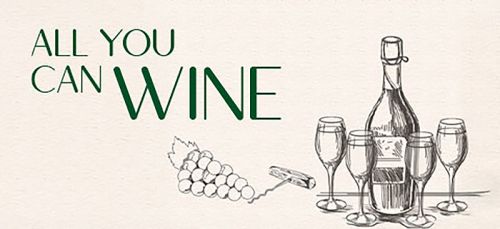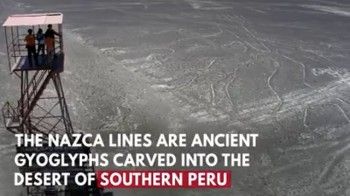- Peru Guide
- Peruvian Visa Types
- Public Holidays & Festivals
- Peru Info
- Culture & Entertainment
- Legal Stuff
- Customs Regulations & Info
- How many days did I get?
- Tourist Visa extension in Peru
- Peruvian Overstay Fine
- International Document for Antecedentes Peru
- Paying Administration Charges
- Permit to Sign Contracts
- Interpol - Ficha de Canje
- Travel Permit
- Subsanacion - Submitting documents
- Extending a Migraciones deadline
- Residence visa extension
- Renewal Carné de Extranjería
- Update Migraciones information
- Carné replacement
- Marrying in Peru
- Driver's License in Peru
- Police Clearance Certificate Peru
- Travel Authorization for Minors
- Finding a Job in Peru
- Domestic Workers in Peru
- Labor Regulations Peru
- Air Passenger Rights
- Safety, Security & Travel Advice
- Shopping in Peru
- Stay Connected
- Business Guide
- Earthquakes
- Emergencies & Help
- History of Peru
- Education, Teaching & Schooling
- Glossary of Terms
- Lima Guide
- Travel & Sights
- Food
- Money
- Events
- Opinion
- Media
- Peru Guide
- Peruvian Visa Types
- Public Holidays & Festivals
- Peru Info
- Culture & Entertainment
- Legal Stuff
- Customs Regulations & Info
- How many days did I get?
- Tourist Visa extension in Peru
- Peruvian Overstay Fine
- International Document for Antecedentes Peru
- Paying Administration Charges
- Permit to Sign Contracts
- Interpol - Ficha de Canje
- Travel Permit
- Subsanacion - Submitting documents
- Extending a Migraciones deadline
- Residence visa extension
- Renewal Carné de Extranjería
- Update Migraciones information
- Carné replacement
- Marrying in Peru
- Driver's License in Peru
- Police Clearance Certificate Peru
- Travel Authorization for Minors
- Finding a Job in Peru
- Domestic Workers in Peru
- Labor Regulations Peru
- Air Passenger Rights
- Safety, Security & Travel Advice
- Shopping in Peru
- Stay Connected
- Business Guide
- Earthquakes
- Emergencies & Help
- History of Peru
- Education, Teaching & Schooling
- Glossary of Terms
- Lima Guide
- Travel & Sights
- Food
- Starter & Appetizer
- Sandwiches
- Soups
- Main Courses
- Salsas, Sauces & Dips
- Desserts
- Snacks
- Drinks & Beverages
- Peruvian Cheese
- Fruits
- Vegetables
- Aji - Chili Peppers
- Grains, Coffee, Beans & Nuts
- Common Herbs
- Other Ingredients
- Money
- Peru Guide
- Peruvian Visa Types
- Public Holidays & Festivals
- Peru Info
- Culture & Entertainment
- Legal Stuff
- Customs Regulations & Info
- How many days did I get?
- Tourist Visa extension in Peru
- Peruvian Overstay Fine
- International Document for Antecedentes Peru
- Paying Administration Charges
- Permit to Sign Contracts
- Interpol - Ficha de Canje
- Travel Permit
- Subsanacion - Submitting documents
- Extending a Migraciones deadline
- Residence visa extension
- Renewal Carné de Extranjería
- Update Migraciones information
- Carné replacement
- Marrying in Peru
- Driver's License in Peru
- Police Clearance Certificate Peru
- Travel Authorization for Minors
- Finding a Job in Peru
- Domestic Workers in Peru
- Labor Regulations Peru
- Air Passenger Rights
- Safety, Security & Travel Advice
- Shopping in Peru
- Stay Connected
- Business Guide
- Earthquakes
- Emergencies & Help
- History of Peru
- Education, Teaching & Schooling
- Glossary of Terms
- Lima Guide
- Travel & Sights
- Food
- Starter & Appetizer
- Sandwiches
- Soups
- Main Courses
- Salsas, Sauces & Dips
- Desserts
- Snacks
- Drinks & Beverages
- Peruvian Cheese
- Fruits
- Vegetables
- Aji - Chili Peppers
- Grains, Coffee, Beans & Nuts
- Common Herbs
- Other Ingredients
- Money
- Peru Guide
- Education, Teaching & Schooling in Peru
Education, Teaching & Schooling
After periods of mass inflation and political insurrection through the 1980s and 1990s, Peru has blossomed economically over the last few years and has become a major tourist destination. In the educational realm, this is reflected by an ever-increasing number of overseas students coming to the country to study for short- and long-term programs. The country still faces challenges in offering equal educational opportunities to all its citizens.
While public education is free, private schools operate at all levels of the education system. Schools in both the public and private sectors follow the national curriculum, set federally and overseen by local education authorities, as mandated in a 2008 ministerial decree.
The academic school year is entirely contained with one calendar year, running from the beginning of March through to November/December. The reason for this is that Peru sits in the southern hemisphere, so autumn there begins in March and the summer holidays are taken from the end of December to February. There is also a winter holiday in July, although the exact timing varies by region.
The language of instruction is Spanish. However, in some regional primary schools, a local language such as Aymará or Quechua is the language of instruction with Spanish offered as a second language.
Colegio Franklin D. Roosevelt
International Schools in PeruColegio Roosevelt is the official U.S. State Department Office of Overseas Education School in Peru and serves the international business and diplomatic community, as well as host country nationals seeking a North American-style of education.American School of LimaPontificia Universidad Católica del Perú (PUCP)
Top Universities in PeruFounded in 1907 by Catholic priest Father Jorge Dintilhac of the Congregation of the Sacred Hearts of Jesus and Mary, the Pontificia Universidad Católica del Perú (PUCP) - Pontifical Catholic University of Peru is a non-profit private higher education institution in Lima.International Christian School of Lima - ICS Lima
International Schools in PeruThe International Christian School of Lima (ICS Lima) is located in the heart of Miraflores and has faithfully served several children of Peruvian diplomats and foreigners, officials of multilateral organizations, and employees of multinational companies for many years.Markham College
International Schools in PeruMarkham College was founded by British expatriates and students fulfill the Peruvian and the IGCSE (International General Certificate of Secondary Education) program from the University of Cambridge.British School in LimaUniversidad Peruana Cayetano Heredia (UPCH)
Top Universities in PeruThe Universidad Peruana Cayetano Heredia (UPCH) - Cayetano Heredia University is a private, non-profit higher education institution in Lima and considered one of the top 2 medical schools in Peru.Newton College
International Schools in PeruNewton College is a Peruvian British school offering a modern, humanistic, technological education combining academic excellence, sound character formation, and a sense of service to the community.British Peruvian School in LimaUniversidad Nacional Mayor de San Marcos (UNMSM)
Top Universities in PeruEstablished in 1551 as the first official university on the American continent, the Universidad Nacional Mayor de San Marcos (UNMSM) is not only the oldest and the longest continuously operating university in the Americas, but also the most respected higher-education institution in Peru.San Silvestre School
International Schools in PeruSan Silvestre School is a British Peruvian girls only school offering a combination of British and Peruvian education. The total enrollment is about 1400; most students are Peruvian, but a variety of different nationalities can be found.Girls-only British School in LimaAbraham Lincoln School
International Schools in PeruThe Abraham Lincoln School is a Peruvian North American school aiming at educating bilingual students, giving them a solid foundation using state of the art technology and current methodologies and preparing them for a constantly changing globalized world.Peruvian North American School in LimaColegio Peruano Britanco
International Schools in PeruThe Colegio Peruano Británico (CPB) is a private institution, inspired by the values and principles of British education.Peruvian British School in LimaPeru Newsflash
Los 3 Patas del Peru
Marca Perú, the official country brand that promotes Peru’s identity, culture, and heritage at home and…Victorinox launches third Peru-themed pocketknife collection
The renowned Swiss company Victorinox, famous worldwide for its high-quality and extremely functional…Lima’s New Airport Terminal to open in June
After many delays, the new terminal of Lima’s Jorge Chavez International Airport is finally operational. On…New lizard species discovered in Peru
There is still so much new to find out about and see in Peru. Just recently Peruvian scientists discovered a…
Peru Event Calendar
Upcoming Events in Peru
17Oct24Oct31OctMore in the Peru Event & Entertainment Calendar
Latest Content...
- Tourist Attractions & Sights in Peru
Machu Picchu
- International Schools in Peru
International Christian School of Lima - ICS Lima
- Peruvian Visa Types
Peruvian Digital Nomad Visa
- Laws, Norms, Legal Codes & Decrees
Legislative Decree No. 1582 (Modification of the Peruvian Foreigner Law, Nov 2023)
- Peruvian Cheese
Queso Rojo de Lluta
- Peruvian Cheese
Peruvian Queso Andino
- Peruvian Cheese
Peruvian Quesillo
- Peruvian Cheese
Peruvian Queso Mantecoso
- Peruvian Cheese
Peruvian Queso Paria
- Peruvian Cheese
Peruvian Queso Fresco
- Legal Stuff
Extension of a Migraciones deadline
- Legal Stuff
Subsanacion - Submitting documents
- Legal Stuff
Replacement for a lost, stolen or damaged carné
- Legal Stuff
Renewal of the Carné de Extranjería
Latest Video
Long Reads...
- Peruvian Archaeology
The Mystery of the Nazca Lines in Peru
In the 1920s, when people first flew across southern Peru, they made an astonishing discovery. Stretching below them,… - Peruvian Personalities & Founders
Francisco Pizarro González (1474-1541)
Francisco Pizarro, a peasant from Spain, was one of the least well-equipped conquerors in history. However, in the name… - Peruvian Archaeology
The colorful Fabrics and Textiles of Peru
Europe’s first knowledge of Peruvian textiles was acquired following the Spanish invasion of Peru in 1532, when the… - Peruvian Legends, Myths & Tales
The Jeweled Frog and the Condor
By a quiet pond, at the side of a cloud-topped mountain in Peru, lived a small green frog and his large green family.… - Peru Info
Peruvian Economy
The Peruvian economy is an emerging, social market economy highly dependent on foreign trade and classified as an upper…
Contact us | Editorial Ethics | Support | T&C | Copyright | Privacy | Discussions & Submissions | Cookies Policy | GDPR | CCPA | DMCA










































